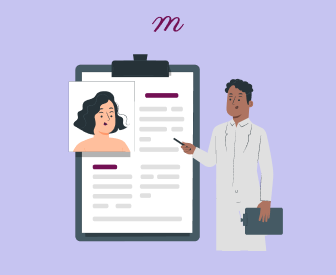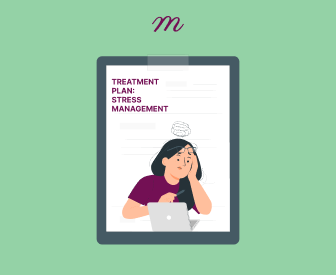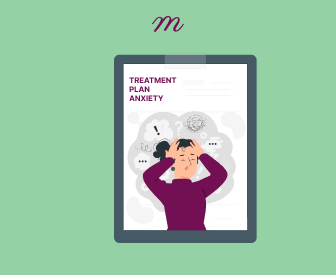Have your progress notes written for you automatically
Therapists often seek tools that enhance the effectiveness and efficiency of their practices. Wiley Treatment Planners, a series of resources developed by John Wiley & Sons, Inc., stands out as a valuable tool. Once only available in book format, the treatment planners are now available as online tools on several HER platforms. This article explores why psychotherapists should consider integrating Wiley Treatment Planners into their practice, discussing their benefits in streamlining treatment planning, enhancing client engagement, and ensuring compliance with best practices and insurance requirements.
What are the Wiley Treatment Planners?
Wiley Treatment Planners (“PracticePlanners”) are part of a series of books published by John Wiley & Sons, Inc., designed to help mental health professionals in their clinical practices. The PracticePlanners series provides everything necessary to create treatment plans that satisfy the demands of many third-party payers and state and federal agencies.
The series includes thousands of evidence-based, customizable, prewritten treatment goals, objectives, and interventions that target specific populations and areas of practice for different psychological issues and disorders. Mental health professionals commonly use them to streamline the process of creating client treatment plans.
A wide range of psychological issues are included, including depression, ADHD, anxiety disorders, substance abuse, personality disorders, and more. Each planner is structured so users can quickly locate treatment plan components by behavioral problem or diagnosis. The clinicians can choose objectives, goals, interventions, and behaviors associated with diagnosis. The treatment plan is developed based on those selections, all of which can be edited and customized to suit clients’ needs. All the elements can be customized and adapted for individual needs, providing a flexible and efficient framework.
The PracticePlanners series includes treatment plans, progress notes, and homework assignment planners. In addition to treatment planning, these tools assist therapists in documenting sessions and assigning therapeutic homework activities to clients. This series is valued for its practicality and alignment with various therapeutic approaches and regulatory requirements.
Rather than writing a treatment plan entirely from scratch, PracticePlanners offers customizable templates that simplify treatment planning!
Benefits of Using the Wiley Treatment Planners
Wiley PracticePlanners is popular among mental health professionals for many reasons. There are several benefits to using Wiley Treatment Planners, including the following:
Saving Time:
Using the prewritten options allows therapists to focus on direct client interactions rather than spending hours researching interventions and developing treatment plans. The planning tools are intuitive and easy to use, which also helps save time with treatment planning, billing, scheduling, and other administrative tasks.
Detailed Record Keeping:
Each treatment plan can be easily documented and tracked, ensuring clinicians maintain comprehensive records that support the clinical reasons for chosen treatments. This documentation is essential for meeting regulatory and insurance requirements, monitoring client progress, and adjusting treatments.
Ease of Documentation:
Utilizing documentation templates helps therapists keep their records organized and streamlined.
Protecting Therapists and Clients:
Proper documentation can help protect clients and therapists in legal or ethical proceedings, creating a cohesive and accessible record of the diagnoses and assessments, therapeutic process, and interventions utilized.
Meeting Agency and Insurers’ Expectations:
Many insurance companies, and even some state and federal agencies, require treatment plans. Wiley uses specific Diagnostic and Statistical Manual of Mental Disorders, fifth edition, text revision (DSM-5-TR) diagnostic codes, and other documentation requirements to satisfy the requirements of insurance companies and review agencies.
Providing Evidence-Based Care:
The recommended interventions are backed by research, ensuring evidence-based treatment plans are appropriate for clients’ specific diagnoses and goals. The comprehensive menu of suggestions includes research-based treatment options customized to specific diagnoses. Additional details for behaviors, goals, objectives, and interventions can be added to create a treatment plan tailored to each client’s needs.
More Effective Communication:
Clear goals and interventions, as listed in the PracticePlanners series, improve communication between therapists and their clients. Clients are more likely to engage in treatments they understand, leading to improved therapeutic outcomes. Effective treatment plans can help clinicians communicate the “how” of therapy by succinctly outlining the specific goals, objectives, and corresponding interventions.
Coordinated Collaboration:
A well-written treatment plan ensures the team works cohesively and effectively.
Enhancing Client Engagement:
Engaging clients in treatment is essential for successful outcomes. Wiley Treatment Planners facilitate this by providing clear, structured plans that clients can easily understand and follow. By involving clients in the treatment planning process and allowing them to see a clear treatment roadmap, therapists can enhance clients' commitment to the therapeutic process.
Customizable and Individualized:
One outstanding feature is the high level of customization. Therapists can select from suggested therapeutic interventions that align with numerous theoretical orientations, such as cognitive-behavioral therapy (CBT) or acceptance and commitment therapy (ACT). This flexibility allows therapists to tailor their treatment plans to their professional style and clients’ preferences and needs. Treatment plans can be modified to address changing needs and concerns. A versatile document is vital to ensuring personalized client care.
Error-proof documentation:
Organization and accuracy are essential in mental health documentation. Whether for reimbursement purposes or because a practice is being audited by a review agency, precise and error-free documentation has a critical impact on the success of any mental health practice.
Training Tool:
Wiley Treatment Planners can be a training tool that helps new therapists while standardizing treatment documentation.
These benefits highlight why Wiley Treatment Planners are a valuable resource in mental health settings. They contribute to more effective therapy outcomes through structured and evidence-based treatment planning.
Wiley Treatment Planners List for Therapists:
Here are some specific Wiley Treatment Planners that might be particularly useful for therapists:
1. The Complete Adult Psychotherapy Treatment Planner
Complete Adult Psychotherapy Treatment Planner provides treatment planning guidelines and pre-written treatment objectives for a wide range of adult mental health issues.
2. Child Psychotherapy Treatment Planner
The Child Psychotherapy Treatment Planner offers treatment plans tailored specifically for children, covering common psychological issues such as attachment disorder, academic problems, and social anxiety.
3. Adolescent Psychotherapy Treatment Planner
The Adolescent Psychotherapy Treatment Planner includes ready-to-use treatment plans for a variety of issues pertinent to adolescents, such as peer conflict and substance abuse.
4. Addiction Treatment Planner
Addiction Treatment Planner focuses on planning treatments for clients dealing with substance abuse and addiction.
5. Couples Psychotherapy Treatment Planner
The Couples Psychotherapy Treatment Planner provides treatment plans and interventions for issues commonly faced by couples, including communication difficulties, infidelity, and financial conflicts.
6. Family Therapy Treatment Planner
The Family Therapy Treatment Planner includes pre-written treatment plans for family therapy, addressing issues like blended family problems, intergenerational conflicts, and parenting challenges.
7. Severe & Persistent Mental Illness Treatment Planner
This treatment planner is designed for managing complex and chronic conditions, offering interventions for schizophrenia, personality disorders, bipolar disorder, and more.
8. Suicide & Homicide Risk Assessment & Prevention Treatment Planner
This planner focuses on risk assessment and preventive planning for high-risk patients.
9. Co-Occurring Disorders Treatment Planner
Co-Occurring Disorders Treatment Planner is designed for clients who have dual diagnoses, such as substance abuse and mental health disorders.
10. Crisis Intervention Treatment Planner
The Crisis Intervention Treatment Planner provides treatment plans for acute crisis situations, such as suicidal ideation or acute trauma response.
Where Can Therapists Find these Wiley Treatment Planners?
These planners can be purchased online at Amazon or the Wiley website. They are also available in many libraries, especially those connected to academic institutions that offer psychology or counseling programs.
EHR's that integrate with Wiley Treatment Planners
Electronic Health Records platforms integrating Wiley Treatment Planners offer a streamlined process to access and utilize pre-written treatment objectives and interventions directly within their practice management systems. Here is a sample of EHR platforms that offer integration with Wiley Treatment Planners:
TheraNest
TheraNest is a practice management and therapy notes software that integrates with Wiley Treatment Planners. It allows therapists to easily add treatment goals, objectives, and interventions to their clients' treatment plans.
Valant
Valant is designed for mental health providers and integrates with Wiley Treatment Planners, enhancing therapists' ability to develop detailed, personalized treatment plans.
My Clients Plus
My Clients Plus is known for its affordability and ease of use. This platform integrates with Wiley Treatment Planners, making it easy for clinicians to create comprehensive treatment plans and progress notes.
These integrations allow mental health professionals to efficiently use established and research-backed interventions in their treatment planning, ensuring consistency and quality in client care. For therapists considering an EHR that includes access to Wiley Treatment Planners, it’s always good practice to confirm the feature availability directly from the EHR provider, as software capabilities frequently update and expand.
Best Wiley Treatment Planners Alternatives
Several alternatives to Wiley PracticePlanners offer similar features. These alternatives provide clinicians with tools for creating personalized treatment plans, goals, and interventions. Here are three alternatives:
Treatment Planner Pro.
This tool provides customizable treatment planning options for various mental health conditions. It focuses on user-friendly interfaces and includes a wide array of evidence-based interventions. The platform allows customized treatment plans and includes a library of goals, objectives, and interventions that clinicians can adapt to fit their needs. It also supports integration with various EHR systems, enhancing workflow efficiency. This platform suits therapists who need flexible treatment planning tools tailored to diverse client needs.
TheraScribe.
Created by the same psychologist who developed the original Wiley Treatment Planners, TheraScribe offers a similar structured approach but with additional features such as progress tracking and outcome assessment tools. It includes a comprehensive library of pre-written treatment plans, a system for managing client information, and tools for tracking client progress. TheraScribe also supports regulatory compliance and data security. It’s suited for mental health professionals who value a comprehensive and integrated system for client management and treatment planning.
Psychotherapy.net Planner.
This treatment planner provides video resources alongside treatment planning, which can help therapists enhance their skills and apply new techniques directly into their practice. The platform includes access to a vast library of psychotherapy videos, articles, and treatment-planning resources and offers options for client education through accessible media. It’s suitable for therapists who prefer to incorporate multimedia learning into their practice and those who value visual and instructional resources.
Conclusion
Wiley PracticePlanners are valuable resources that improve the quality of care therapists provide. By streamlining the treatment planning process, enhancing client engagement, and ensuring compliance with professional standards, the planners serve as an essential tool in the modern psychotherapist's toolbox. Integrating Wiley Treatment Planners into practice aids in delivering effective therapy and improves the overall professionalism and efficiency of therapeutic services. Therapists looking to optimize their practice and provide the best possible care to their clients should consider the numerous benefits of Wiley PracticePlanners.










